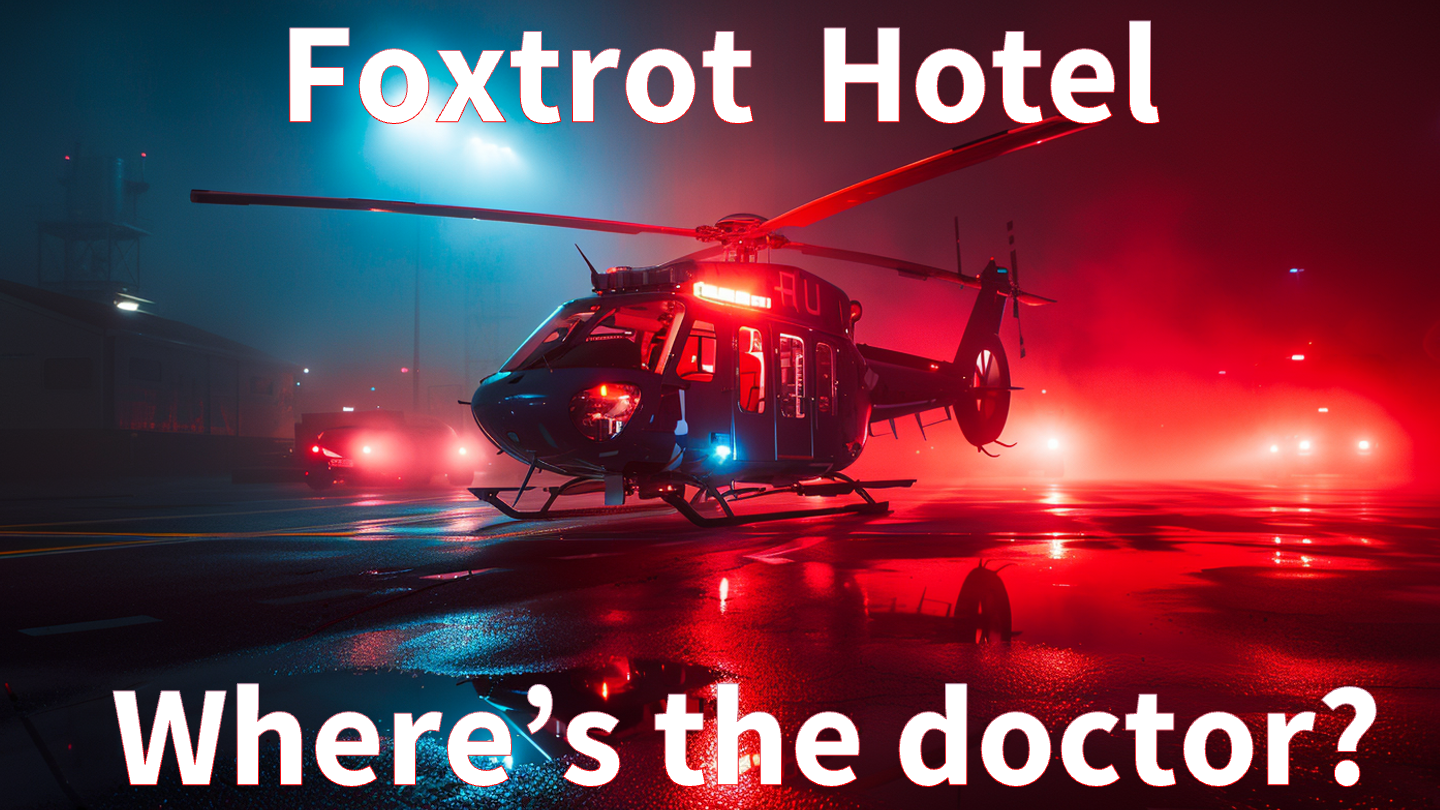A UK pre-hospital emergency service is now planning to run its air ambulance service without a doctor on board.
Pre-hospital emergency anaesthesia (PHEA) is required for the sickest of patients outside hospital; major trauma patients by the side of the motorway, or treating the obese cardiac arrest patient in a cramped living room with distressed family present. PHEA is a clinical area where non-doctors have always been supervised by experienced physicians as it poses even more risk to patients than anaesthesia administered in a hospital.
The combination of critically ill patients, inhospitable environments and an increased cognitive load make it extremely challenging. Indeed there are many situations that push seasoned anaesthetic and emergency medicine consultants to their limits – even those with armed conflict experience. For this reason it has always been the reserve of doctors with significant experience in anaesthesia, intensive care and emergency medicine. The suggestion that anyone other than one of these highly qualified professionals would be leading pre-hospital anaesthesia cases is deeply concerning.
Instead there are plans for The South Western Ambulance Service NHS Foundation Trust, in conjunction with Great Western Air Ambulance, to staff their crews that deliver these anaesthetics without including a doctor. The project has been developed by a small group, without formal canvassing of the opinions of the consultants in the region or nationally.
The UK has 59 pre-hospital services in the UK, all led by physicians. The Association of Anaesthetists (AoA) and Intercollegiate Board for Training in Pre-Hospital Emergency Medicine (IBTPHEM) both require that pre-hospital anaesthesia is physician-led. The AoA recommends that, given the challenges of PHEA, the experience of practitioners should be at least as advanced as that in a hospital setting. A critically ill patient in hospital requiring rapid sequence intubation would mandate at a minimum a doctor with significant anaesthetic experience and some, if not all, relevant postgraduate exams. Wherever possible a consultant should also be involved in the intervention.
As a result, a formal training path for doctors to become a consultant qualified to deliver PHEA has been developed. Doctors spend a year of additional time near the end of training becoming experts in this form of risky anaesthesia.


It has been repeatedly demonstrated by NAP4 and other surveys that patient mortality and morbidity are determined by the environment where care is provided and the level of experience of the anaesthetist. Rapid Sequence Induction and Intubation of ED and ICU patients are associated with the highest incidence of airway complications. Less experienced unsupervised practitioners carrying out this risky procedure is associated with avoidable harm and mortality. That harm can only be avoided by the presence of more experienced doctors. Doctor-paramedic teams have been shown to be superior in the pre-hospital setting when advanced airway skills including intubation are required.
The paramedic experience of the individual in this programme isn’t in question, however, their anaesthetic experience consists of the hospital based initial assessment of competence (IAC). A doctor with this level of competence would require years more airway training before it was suitable for them to manage difficult cases with distant supervision.
The press release for the scheme reports acceptance by some of the key groups within pre-hospital medicine. It is not clear, however, what governance processes occurred prior to the Chair of ITBPHEM approving a scheme that goes against national guidance crafted by experts in anaesthesia in the RCoA and AoA.
National guidelines, set by expert bodies, exist to ensure uniform standards of care for patients. Services ignoring these and allowing healthcare professionals to act beyond scope puts patients at risk. We must avoid the all too common pitfall of believing that non-doctor experience is a sufficient substitute for the rigorous education and training doctors possess.
